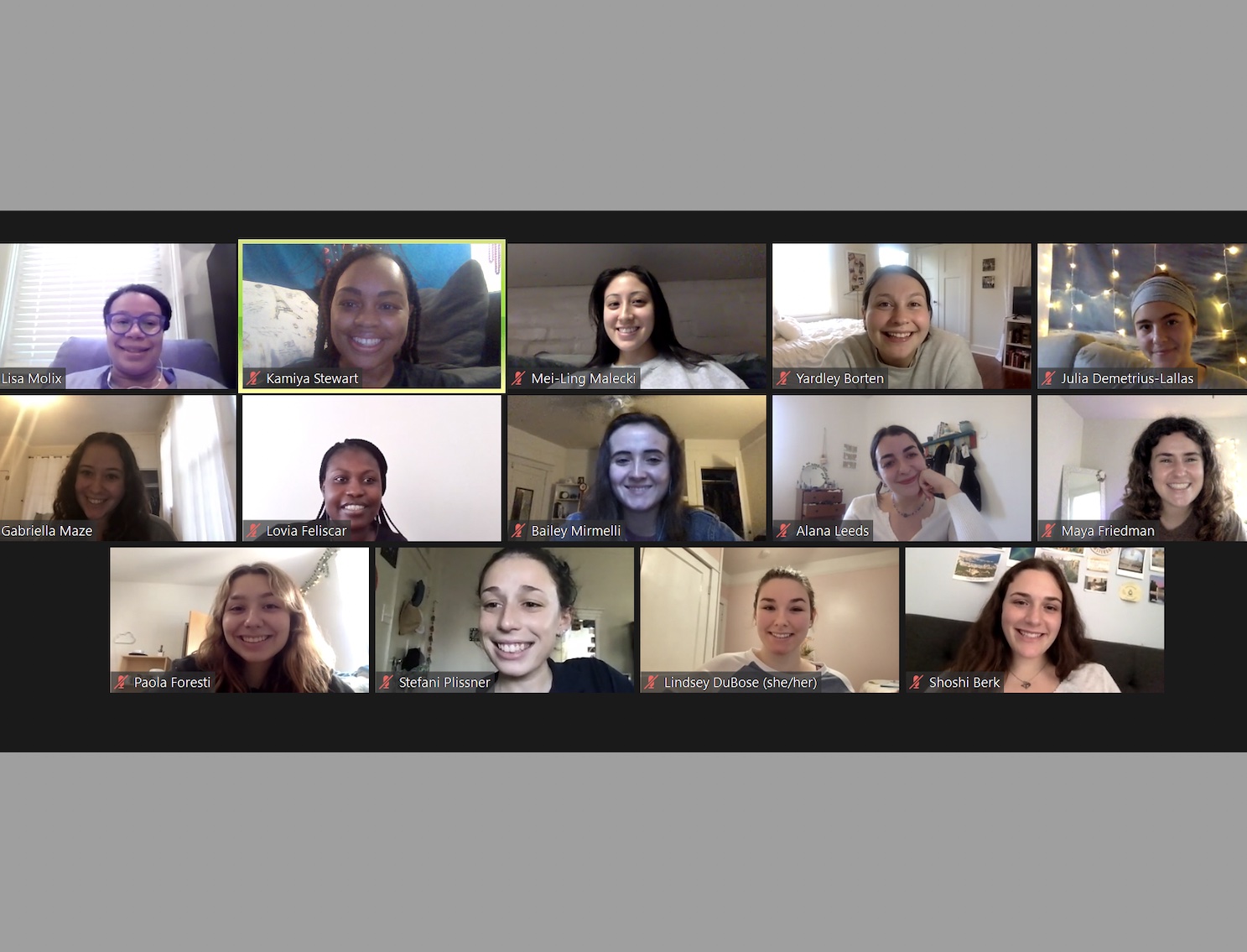Changemaker Catalyst Award recipient, Lindsey DuBose, served as a Research Assistant for the Spring 2021 semester in Dr. Lisa Molix’s Social Relations & Wellness Psychology lab. Lindsey is a junior double majoring in Psychology and Gender & Sexuality Studies with a minor in Public Health.

As a scholar and student activist, I have loved my time in Gender and Sexuality Studies courses that focus on and compel us to be involved in knowledge production, a process that has historically been dominated by white male researchers and largely lacks subjectivity and diverse experience. For this reason, I have been challenging myself to reconsider what dictates “truth,” and how our methods of producing knowledge themselves may not be the right answer. Since then, being a research assistant in a Social Psychology lab has been on my college bucket list to get a firsthand glimpse at scientific practices employed for social justice initiatives. Though as a first-generation college student paying my own way through my time at Tulane, I knew that I might not be able to afford to volunteer so many hours. Fortunately, I came across the Phyllis M. Taylor Center for Social Innovation and Design Thinking website in time to find the Changemaker Catalyst Award application, which aimed to help fund undergraduate experiences in social innovation, in my case a research apprenticeship. I was beyond grateful to be invited to join Dr. Lisa Molix’s Social Relations and Wellness Psychology lab, which focuses on intergroup relations and overall well-being of marginalized groups, among other social justice issues. As a future Social Worker, it has always been important to me to participate in work like this which aims to bring attention to injustices against and their effects on BIPOC and other marginalized groups. Though explaining the specifics of our work breaches our duties as researchers, through this position I have gained invaluable experience in numerous capacities.
Though the lab was virtual this year, I was still able to gain experience through this role. Through this position I have learned to measure and code qualitative data for research purposes. The most exciting part of my job is the weekly “coding meeting” with my coding partner Yardley Borten and my graduate advisor Lovia Feliscar where we facilitate dialogue on our codes to reach agreements.

The most challenging tasks I have been given are the literature reviews and forward searches I have conducted on different social psychology principles where I learned to succinctly summarize the main findings of different works. And I have even participated in professional development workshops where I had the opportunity to learn about the graduate school admissions process, as well as write mock cover letters and participate in a peer review process to better my own self advocation and writing.

This work specifically relates to changemaking because the concepts we explore can be applied to how different people and groups interact with each other and the world we live in. Having this background understanding allows us to better understand social systems that disproportionately alienate certain communities and enact change to combat these issues.
As a rising senior planning to conduct my own Honor’s Thesis or Independent Study next year, my experience in this lab is invaluable to my skillset of coding and conducting background research. Without this grant and the help of Samantha and the rest of the Taylor Center, this opportunity would not have been possible for me. I am happy to say that I will be continuing to expand my knowledge in research design by working in this lab throughout the summer and in person this upcoming school year, as well as furthering my education on intergroup relations through a course taught by Dr. Molix this fall!
